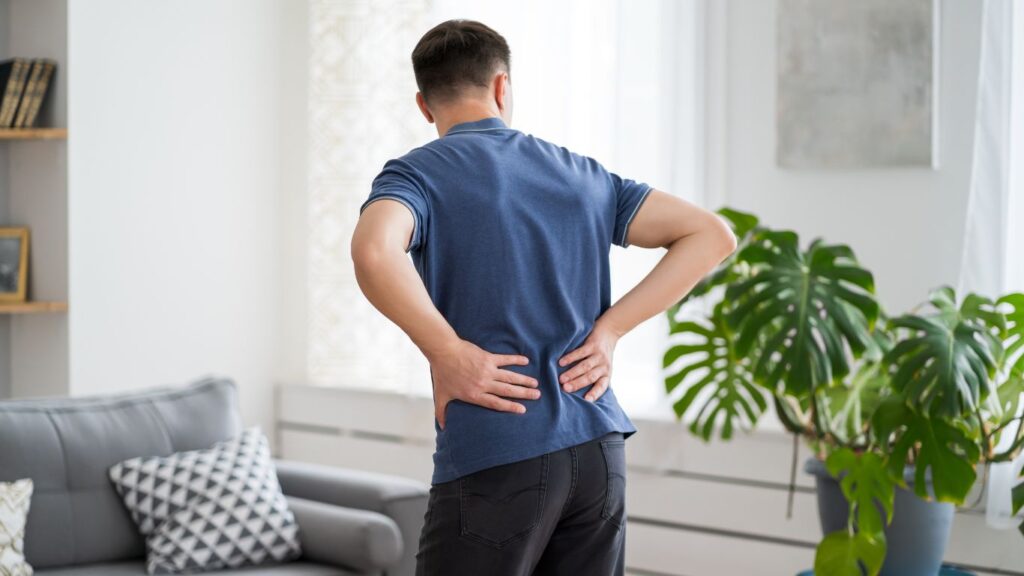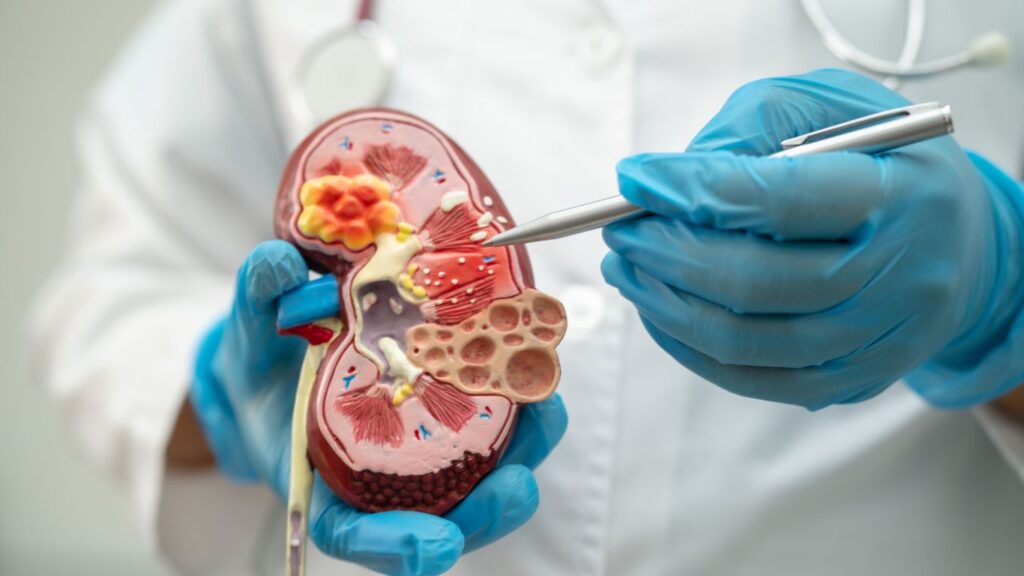Kidney stones are a common and painful condition that affects millions of people worldwide. They are hard deposits made of minerals and salts that form inside your kidneys. Recognizing the early signs of kidney stones can help you seek treatment quickly and avoid complications. In this blog, we’ll discuss the symptoms you should look out for, along with tips on how to manage and prevent kidney stones.
Early Signs of Kidney Stones You Shouldn’t Ignore
Early Signs of Kidney Stones :

1. Pain in the Lower Back or Side (Flank Pain)
One of the most prominent and early signs of kidney stones is pain in the lower back or side, known as flank pain. The pain typically starts suddenly and can be intense, often described as sharp, stabbing, or cramping. It can be felt on one side of the body and may radiate to the lower abdomen and groin. The pain can come and go as the stone moves through the urinary tract, making it difficult to find relief.
2. Pain or Burning Sensation During Urination
If you experience discomfort, pain, or a burning sensation while urinating, it could be a sign that a kidney stone has moved down to the junction of the ureter and bladder. This can cause irritation and inflammation, leading to pain. Often, this symptom is mistaken for a urinary tract infection (UTI), so it’s important to consult a healthcare professional for an accurate diagnosis.
3. Frequent Urge to Urinate
Feeling an increased need to urinate more frequently than usual, especially if you find yourself waking up in the middle of the night to use the bathroom, could be an early indicator of kidney stones. This symptom occurs when the stone moves to the lower part of the urinary tract and starts irritating the bladder. Frequent urination is often accompanied by small, frequent amounts of urine.
4. Nausea and Vomiting
Nausea and vomiting are less common but significant symptoms of kidney stones. The intense pain caused by the movement of stones can trigger nausea, and the body’s response to the pain may lead to vomiting. Additionally, stones can cause an obstruction in the urinary tract, which affects kidney function and can also lead to these symptoms. If you experience nausea and vomiting along with other symptoms of kidney stones, seek medical attention promptly.
5. Cloudy, Foul-Smelling, or Discolored Urine
Changes in the appearance and smell of your urine can indicate the presence of kidney stones. If your urine is cloudy or has a foul smell, it could be due to an infection that is often associated with kidney stones. Discolored urine, especially if it appears pink, red, or brown, can indicate the presence of blood, a condition known as hematuria. This occurs when the stone causes damage or irritation to the lining of the urinary tract.
6. Difficulty Passing Urine or Reduced Urine Output
If a kidney stone is blocking the ureter (the tube that carries urine from the kidney to the bladder), it can lead to difficulty passing urine or a decrease in the volume of urine. This can cause discomfort and even lead to more serious complications if the blockage isn’t resolved. In severe cases, a complete blockage can cause kidney damage, so it’s essential to seek medical help if you experience these symptoms.
7. Blood in the Urine (Hematuria)
Blood in the urine is one of the most alarming early signs of kidney stones. You may notice your urine is pink, red, or brown, which indicates that there may be bleeding in the urinary tract. Stones can scrape the delicate tissues lining the urinary tract, causing bleeding. Even if the bleeding is minimal, it’s important to have it checked out by a healthcare professional to determine the underlying cause.
When to Seek Medical Attention
While the symptoms mentioned above can indicate kidney stones, they can also be associated with other medical conditions, such as UTIs or bladder infections. If you experience any of these symptoms, it is crucial to seek medical advice. Timely diagnosis can help prevent complications, such as infections, kidney damage, or the need for more invasive treatments.
You should consult a healthcare provider if:
- The pain is so severe that you cannot find a comfortable position.
- You have nausea, vomiting, or fever along with the pain.
- There is blood in your urine, or your urine is dark and discolored.
- You have difficulty passing urine or a noticeable decrease in urine output.
How Are Kidney Stones Diagnosed?
If you experience any of the early signs mentioned above, your healthcare provider may perform several diagnostic tests to confirm the presence of kidney stones, including:

- Urine Test: To check for signs of infection, blood, or minerals that form stones.
- Blood Test: To identify high levels of calcium, uric acid, or other chemicals that contribute to stone formation.
- Imaging Tests: X-rays, CT scans, or ultrasounds are commonly used to locate the stone and determine its size and location.
- Stone Analysis: If you pass a stone, your doctor may analyze it to determine its type and cause.
Prevention Tips: How to Avoid Kidney Stones
Preventing kidney stones involves making certain lifestyle changes that can significantly reduce your risk. Here are some practical tips:
- Stay Hydrated: Drinking plenty of water throughout the day helps to dilute the substances in urine that lead to stone formation. Aim for at least 8-10 glasses of water daily.
- Limit Salt Intake: High sodium levels can increase the amount of calcium in the urine, raising the risk of stone formation. Try to reduce your intake of salty foods.
- Eat a Balanced Diet: A diet rich in fruits, vegetables, and whole grains can reduce the risk of kidney stones. Limit foods high in oxalates (such as spinach and beets) if you are prone to calcium oxalate stones.
- Avoid Excessive Protein Intake: Eating too much protein, especially animal protein, can increase the levels of certain chemicals in urine, making stone formation more likely.
- Include Calcium-Rich Foods: Contrary to popular belief, low calcium intake can increase your risk of stones. Include adequate calcium in your diet, but avoid taking calcium supplements without medical advice.
Conclusion
Recognizing the early signs of kidney stones is essential for prompt diagnosis and effective treatment. If you experience any symptoms like flank pain, blood in the urine, or difficulty urinating, it’s important to seek medical help right away. While kidney stones can be painful, early intervention can prevent more serious complications and help you get back to your daily life more comfortably. By staying hydrated, maintaining a balanced diet, and making other lifestyle adjustments, you can reduce your risk of developing kidney stones in the future.
Also read: The Link Between Uric Acid and Kidney Health
